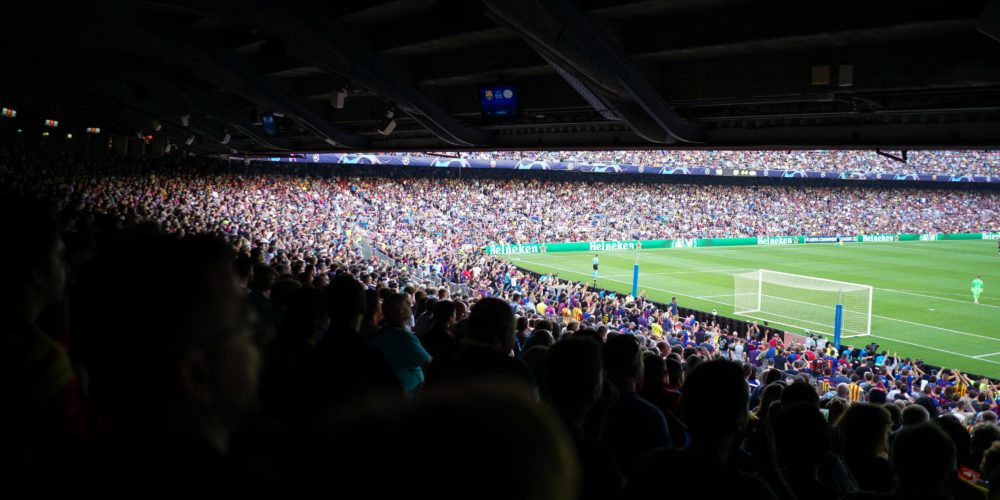What football’s moneymen have forgotten: community

The owners of the elite European football clubs seemed to plunge themselves into a collective sudden-onset madness a couple of weeks ago.
12 top clubs announced they were to be part of a breakaway European Super League, to replace the UEFA Champions League on their calendars. The difference? The elite clubs would run the new arrangement, to suit themselves.
The outrage was immediate and forceful. Fans showed their outrage, on social media and in person, banners at the ready. Top managers were kept in the dark and did not endorse the project. The world’s existing football bodies threatened strict penalties for rebel clubs. Players and pundits were scathing in their remonstrations. Even political leaders, sensing a populist drum to beat, threatened legal intervention.
Some of the clubs lost their nerve within 48 hours and withdrew from the new arrangement. Others followed, and the project fell like a house of cards. Club owners, sensing the anger of their fans, were forced into belated apologies and justifications. The new league is now in limbo, threats and accusations flying. The whole thing looked like an astonishing clown show.
What happened? How did the wealthy elite, with their armadas of well-paid backers and advisors, read this wrong? How did those who pride themselves on being the smartest guys in the room end up looking like the dumbest?
Two things: money madness, and lack of human understanding.
The 12 clubs (owned, in the words of the NYT’s Rory Smith, by “venture capitalists, industrialists and petrochemical princelings”) went for a bold play that would give them guaranteed income by reducing competition, and put restrictions on expenditures.
This was not a new idea. In truth, world soccer was corrupted in the 1990s, when television rights were sold to the highest bidders and the game turned into an exercise in celebrity-building and mass merchandising. Attracted by the huge pots of money to be made, as well as the status, prestige and influence that comes from being part of the global sport, a motley crew of financiers and buyers arrived to take charge. These days, most clubs simply cannot have any sustained success without colossal financial backing, of the type that can only come from state funds and oligarchs.
The 12 clubs were only taking the show to its logical conclusion.
To understand what they got wrong, let’s heed a reminder from two broad-minded economists (of which there are very few), Paul Collier and John Kay. In their new book, Greed is Dead, they remind us of something all thoughtful observers have understood since human beings first started gathering together: the need for community.
In their words:
“Humans have become successful not by being selfish and smart, but by being social. In well-functioning societies, humans construct and abide by a vast web of kindness and mutual obligations of which Economic Man would be incapable.”
They are only echoing the thoughts of thinkers as diverse as Adam Smith and Karl Marx. We in African and Asian societies, however, need not look too far for insight: community is central to our sense of daily wellbeing.
Darwinian economic thinking suggests that the greedy and selfish will successfully push aside others in the competition to survive and thrive – and that lesser mortals should acquiesce and await some meagre benefits of being used and exploited by those aggressive titans.
The European Super League fiasco showed the limits of that ethos. The football clubs of Manchester, Liverpool and Turin may have achieved remarkable global fame, but their roots lie in the local communities of those cities. The clubs have given purpose and meaning and belonging to the lives of those communities. For a few moneymen to think they can take unilateral decisions on the future of their clubs was foolhardy indeed. A football club is a common pursuit, with fans and players and local institutions central to the identity and ethos of the whole.
This is an event that should make every shared enterprise take pause. Too many shareholders think their “ownership” of corporations gives them the unchallenged right to hold sway over every decision. Well guess what, employees and customers and suppliers and neighbours and politicians will have a lot to say about that. And where history and origins play a big role, you may find strongly held emotions being stronger than your purse.
Enlightened organizations do not live by the “devil take the hindmost” credo. They construct an ecosystem of shared benefits. They understand that business is more than a spreadsheet; it is a sea of sentiment that must be understood and managed with skill and generosity. Will the world of football realize this truth now? The gross monetization of the beautiful game will take some undoing, but shots have been fired.
(Sunday Nation, 2 May 2021)

Buy Sunny Bindra's new book
The X in CX
here »
Popular Posts
- NY’s wake-up call to the old guardNovember 9, 2025
- Save your strength for repairsNovember 2, 2025
- How to listen, really listenNovember 16, 2025
- Empathy is the missing code in CXOctober 26, 2025
- Use AI, but don’t lose youOctober 19, 2025















